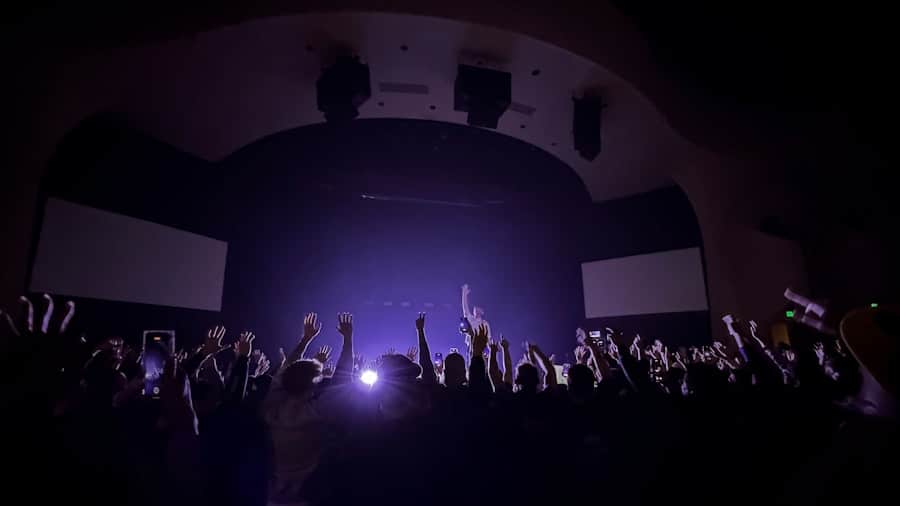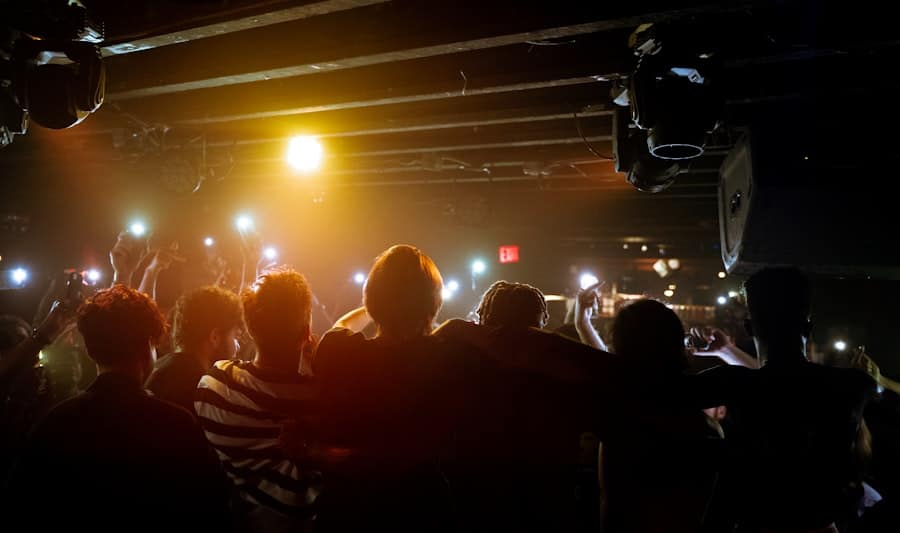The phenomenon of virtual concerts within video games has surged dramatically in recent years, marking a significant evolution in how music is experienced and consumed. This trend gained notable traction during the COVID-19 pandemic when traditional live events were curtailed, prompting artists and game developers to explore innovative avenues for engagement. One of the most iconic examples is Travis Scott’s concert in Fortnite, which attracted over 12 million concurrent players.
This event not only showcased the potential of virtual concerts but also highlighted the unique capabilities of gaming platforms to host large-scale performances that transcend geographical limitations. As the gaming industry continues to grow, so does its capacity to serve as a venue for musical expression. Games like Roblox and Minecraft have also hosted virtual concerts, allowing players to interact with their favorite artists in immersive environments.
These events often feature elaborate stages, interactive elements, and even narrative components that enhance the overall experience. The rise of virtual concerts in games is not merely a trend; it represents a fundamental shift in how music is integrated into digital spaces, creating new opportunities for artists to connect with their audiences in ways that traditional venues cannot replicate.
Key Takeaways
- Virtual concerts in games are becoming increasingly popular, providing a new platform for artists to reach their fans.
- Virtual concerts have the potential to revolutionize the music industry, offering new revenue streams and marketing opportunities for artists.
- Virtual concerts in games offer advantages for both artists and fans, including accessibility, interactivity, and the ability to reach a global audience.
- Technology plays a crucial role in the success of virtual concerts, enabling immersive experiences and seamless integration with gaming platforms.
- Virtual concerts in games are changing the experience of music events by offering unique, interactive, and customizable experiences for fans.
The Impact of Virtual Concerts on the Music Industry
Virtual concerts have begun to reshape the music industry landscape, offering both challenges and opportunities for artists, record labels, and promoters. One of the most significant impacts is the democratization of access to live music. Fans who may have been unable to attend physical concerts due to financial constraints or geographical barriers can now participate in these virtual events from the comfort of their homes.
This shift has the potential to broaden an artist’s fan base, allowing them to reach audiences that were previously inaccessible. Moreover, virtual concerts have introduced new revenue streams for artists. While traditional concerts rely heavily on ticket sales and merchandise, virtual events can incorporate various monetization strategies, such as in-game purchases, exclusive content, and sponsorship deals.
For instance, during his Fortnite concert, Travis Scott reportedly earned millions through a combination of in-game purchases and brand partnerships. This model not only provides financial benefits but also encourages artists to experiment with their performances, integrating interactive elements that enhance viewer engagement and create memorable experiences.
The Advantages of Virtual Concerts in Games for Artists and Fans

For artists, virtual concerts present a unique platform to showcase their creativity without the logistical constraints of physical venues. They can design elaborate stages, incorporate stunning visual effects, and even create interactive experiences that allow fans to engage with their music in unprecedented ways. This level of artistic freedom can lead to innovative performances that push the boundaries of traditional concert formats.
Additionally, virtual concerts can be recorded and shared across various platforms, extending their reach beyond the live event itself. Fans also benefit significantly from virtual concerts in games. The immersive nature of these events allows for a more engaging experience compared to traditional live shows.
Players can interact with their environment, explore different aspects of the concert space, and even communicate with other fans in real-time. This interactivity fosters a sense of community among attendees, as they share their experiences and reactions during the performance. Furthermore, many virtual concerts are free or low-cost, making them accessible to a wider audience and allowing fans to enjoy high-quality performances without the financial burden often associated with live events.
The Role of Technology in Virtual Concerts
Technology plays a pivotal role in the execution and success of virtual concerts within gaming environments. Advanced graphics engines and real-time rendering capabilities enable developers to create visually stunning concert experiences that captivate audiences. For instance, Epic Games’ Unreal Engine has been instrumental in producing high-fidelity graphics that enhance the realism and immersion of virtual performances.
This technology allows for dynamic lighting effects, intricate stage designs, and lifelike animations that elevate the overall aesthetic of the concert. Moreover, the integration of augmented reality (AR) and virtual reality (VR) technologies is transforming how fans experience music events. With VR headsets, attendees can feel as though they are physically present at a concert, surrounded by other fans and immersed in a 360-degree environment.
This level of immersion can create emotional connections that are often missing from traditional live performances. Additionally, advancements in streaming technology ensure that these events can reach vast audiences without compromising quality, allowing for seamless broadcasts that maintain high audio and visual fidelity.
How Virtual Concerts in Games Are Changing the Experience of Music Events
The advent of virtual concerts within gaming platforms is fundamentally altering the way music events are experienced by fans. Unlike traditional concerts where attendees are often limited by physical space and location, virtual concerts can accommodate thousands or even millions of participants simultaneously. This shift not only democratizes access to live music but also creates a sense of shared experience among fans from diverse backgrounds and locations.
Furthermore, the interactive nature of virtual concerts allows for a more personalized experience. Fans can choose their vantage points, explore different areas of the concert space, and engage with interactive elements that enhance their enjoyment. For example, during a concert in Roblox, players might be able to collect virtual items or participate in mini-games related to the artist’s music.
This level of engagement fosters a deeper connection between fans and artists, as attendees feel more involved in the performance rather than being passive observers.
The Potential for Virtual Concerts to Reach a Global Audience

One of the most compelling aspects of virtual concerts is their ability to transcend geographical boundaries and reach a global audience. Traditional concerts are often limited by venue capacity and location; however, virtual platforms can host an unlimited number of attendees from around the world. This global reach not only expands an artist’s fan base but also allows for cultural exchange as fans from different regions come together to celebrate music.
The potential for global engagement is exemplified by events like the “One World: Together at Home” concert organized by Global Citizen during the pandemic. This event featured performances from various artists across multiple genres and was streamed online for millions worldwide. Such initiatives demonstrate how virtual concerts can unite people across borders for a common cause while showcasing diverse musical talents.
As technology continues to advance, the ability to create localized experiences within global events will further enhance this potential, allowing artists to connect with fans on a more personal level.
The Future of Virtual Concerts in Games and Their Integration with Virtual Reality
Looking ahead, the future of virtual concerts within gaming environments appears promising, particularly with the ongoing advancements in virtual reality technology. As VR becomes more accessible and affordable, we can expect an increase in fully immersive concert experiences that allow fans to feel as though they are part of the performance. Imagine attending a concert where you can walk around a virtual venue, interact with other fans, and even meet the artist in a digital meet-and-greet setting.
Additionally, as game developers continue to innovate and refine their platforms, we may see more sophisticated integration of music into gameplay mechanics. For instance, future games could feature dynamic soundtracks that change based on player actions or incorporate live performances as part of the game’s narrative structure. This integration would not only enhance gameplay but also create unique opportunities for artists to engage with fans through interactive storytelling.
The Challenges and Opportunities of Virtual Concerts for Artists and Game Developers
While virtual concerts present numerous opportunities for artists and game developers alike, they also come with their own set of challenges. For artists, one significant hurdle is navigating the technical aspects of virtual performances. Ensuring high-quality audio and visual output requires collaboration with skilled developers and sound engineers who understand both music production and gaming technology.
Additionally, artists must adapt their performance styles to suit virtual environments, which may differ significantly from traditional stage settings. For game developers, creating engaging virtual concert experiences demands substantial resources and expertise. The development process involves not only designing visually appealing environments but also ensuring smooth user interactions and robust server capabilities to handle large audiences.
Furthermore, there is an ongoing need for innovation; as more artists embrace virtual concerts, developers must continually push creative boundaries to stand out in an increasingly crowded market. Despite these challenges, the potential rewards are significant. Successful virtual concerts can lead to increased visibility for both artists and game developers while fostering new forms of artistic expression that resonate with audiences worldwide.
As this trend continues to evolve, it will undoubtedly shape the future landscape of both the music industry and gaming culture.
In recent years, the landscape of music events has been dramatically transformed by the advent of virtual concerts within video games, offering a glimpse into the future of entertainment. This innovative approach not only provides an immersive experience for fans but also opens up new avenues for artists to reach global audiences without the constraints of physical venues.
FAQs
What are virtual concerts in games?
Virtual concerts in games are live music events that take place within a virtual environment, such as a video game or virtual reality platform. These events feature real-life musicians performing for an audience of players who attend the concert within the game.
How do virtual concerts in games work?
Virtual concerts in games typically involve the integration of live or pre-recorded performances by musicians into the game environment. Players can attend the concert by logging into the game at a specific time and location, where they can interact with other attendees and experience the performance through their avatars.
Why are virtual concerts in games considered the future of music events?
Virtual concerts in games are seen as the future of music events because they offer a unique and immersive experience for both musicians and audiences. These events have the potential to reach a global audience, provide new revenue streams for artists, and offer innovative ways for fans to engage with their favorite music.
What are the benefits of virtual concerts in games?
Virtual concerts in games offer several benefits, including the ability to reach a larger and more diverse audience, the potential for interactive and immersive experiences, and the opportunity for musicians to experiment with new forms of artistic expression. Additionally, virtual concerts can provide a safe and accessible alternative to traditional live events, especially during times of social distancing or travel restrictions.
What are some examples of virtual concerts in games?
Some examples of virtual concerts in games include events hosted within popular video games such as Fortnite, Minecraft, and Roblox. These games have featured performances by well-known artists and have attracted millions of players to attend virtual concerts within their virtual worlds.

